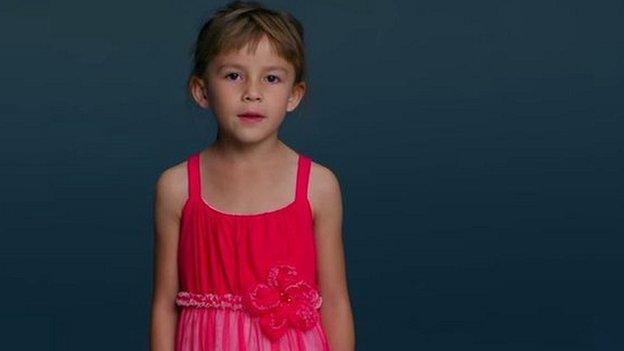Nike, Colin Kaepernick and other ads with a social message
- Published
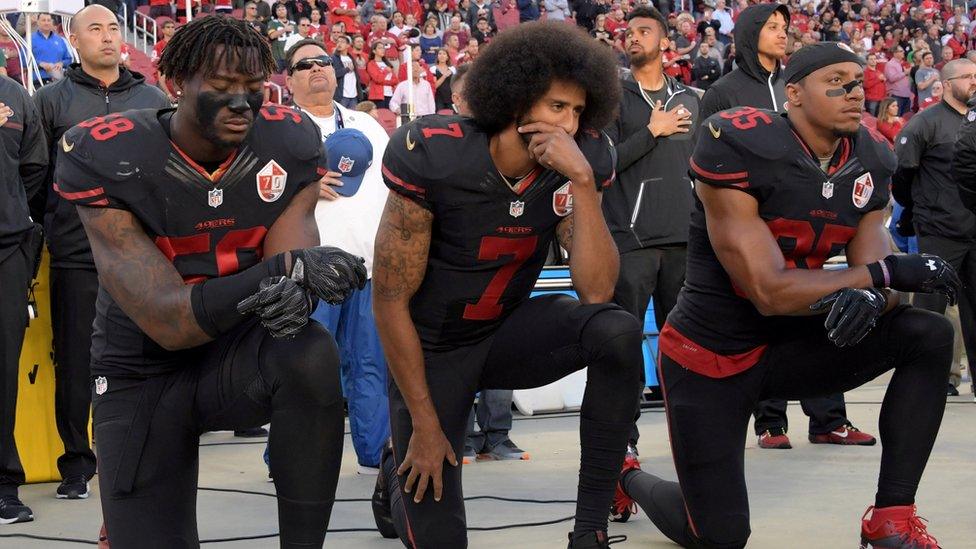
Former NFL player Colin Kaepernick is the newest face of Nike's Just Do It campaign.
It's a move which has divided opinion - and even caused some people to cut up their Nike clothes.
The 30-year-old caused controversy in 2016 for kneeling during the American national anthem before matches.
He was protesting police violence against black people in the US, but some people - including Donald Trump - have called him disrespectful.
The Nike adverts show Kaepernick with the slogan: "Believe in something. Even if it means sacrificing everything."
Allow Instagram content?
This article contains content provided by Instagram. We ask for your permission before anything is loaded, as they may be using cookies and other technologies. You may want to read Meta’s Instagram cookie policy, external and privacy policy, external before accepting. To view this content choose ‘accept and continue’.

It's certainly not the first time a company's used big social issue to advertise products.
"Would I say it's straightforwardly cynical? Maybe," says Dr Robin Carey, who's a marketing expert at the University of Central Lancashire.
"There is always going to be a commercial angle.
"But that doesn't mean that it can't be good for raising awareness."
Dove's 'real beauty' gamechanger
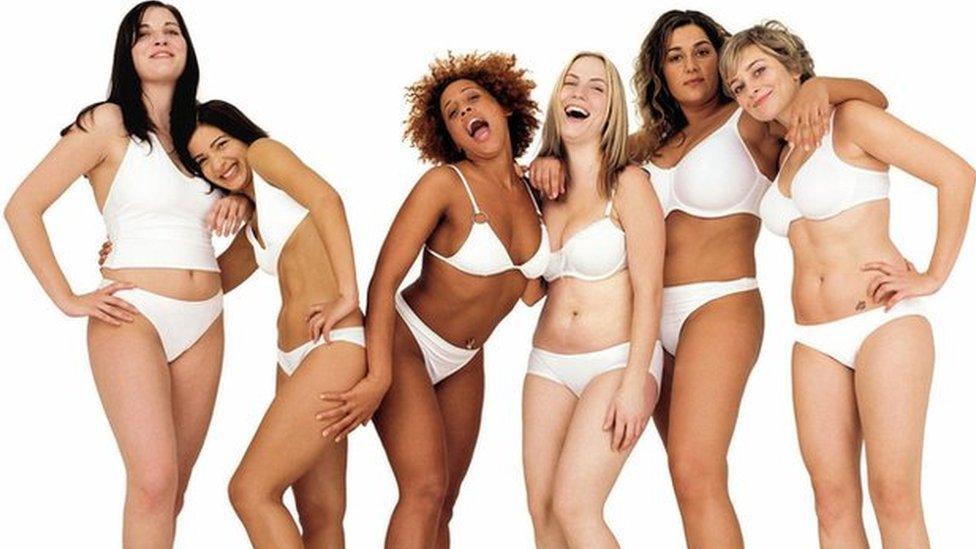
A "hugely successful" campaign from the past few years has been Dove's promotions using "real women" rather than very thin models.
"The campaign recalibrated what was appropriate," says Dr Carey.
"I think it did have some positive effects - as much as I'm slightly cynical of their original intention."
Dove has said that the campaign, which started in the mid-2000s, boosted sales by "billions of euros".
Continuing to challenge stereotypes
Allow YouTube content?
This article contains content provided by Google YouTube. We ask for your permission before anything is loaded, as they may be using cookies and other technologies. You may want to read Google’s cookie policy, external and privacy policy, external before accepting. To view this content choose ‘accept and continue’.
A few years after Dove's ads, came another campaign aiming to smash female stereotypes.
The feminine hygiene brand Always started the #LikeAGirl hashtag with a video asking people to run, throw and fight "like a girl".
It showed that adults had learned the stereotypes - they were all flappy hands and soft whimpers - while young girls hadn't.
It tapped into a growing conversation about female representation, with the Youtube video getting 20 million views in its first week.
An advert that sparked death threats
Allow YouTube content?
This article contains content provided by Google YouTube. We ask for your permission before anything is loaded, as they may be using cookies and other technologies. You may want to read Google’s cookie policy, external and privacy policy, external before accepting. To view this content choose ‘accept and continue’.
Way back in 1994, an Ikea advert in the US was the first mainstream TV advert to feature a gay couple.
It seems pretty tame now - the men just talk about buying a dining room table together - but at the time it was groundbreaking.
An advertising expert in the US described it as a "giant leap for the gay community" at the time.
But it did spark a backlash from angry protestors. One Ikea store in New York had to be evacuated because of a bomb scare - which turned out to be a fake threat.
Meet the Superhumans
Allow YouTube content?
This article contains content provided by Google YouTube. We ask for your permission before anything is loaded, as they may be using cookies and other technologies. You may want to read Google’s cookie policy, external and privacy policy, external before accepting. To view this content choose ‘accept and continue’.
London 2012 was the first time the Paralympics was watched by a really big audience.
Part of this was because of Channel 4's coverage, which launched with a powerful ad, external showing disabled athletes at work.
For Rio 2016, they went a step further with a trailer called We're the Superhumans.
It featured 120 people with disabilities including sportspeople, musicians and a pilot using her feet to control the plane.
"'I'm afraid to go on' has turned into: 'Yes I can,'" sings Tony Dee, who uses a wheelchair.
When it backfires: Kendall and Pepsi
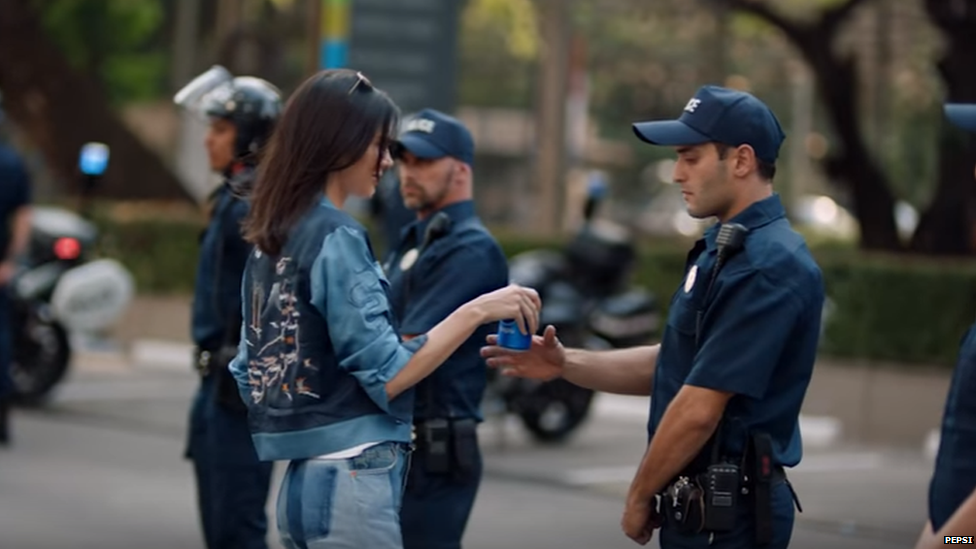
It doesn't always go to plan.
Last year, Kendall Jenner was accused of undermining the Black Lives matter movement in a Pepsi advert.
In it, she leaves a photoshoot to join protesters calling for love and peace, before handing a can to police as a peace offering.
The officer cracks a smile and the crowd cheers.
The ad was criticised for painting a "privileged, white" model as a peacemaker between civil rights activists and police.
The supermodel later said: "I feel really bad that anyone was ever offended. I feel really bad that this was taken such a wrong way".
Follow Newsbeat on Instagram, external, Facebook, external and Twitter, external.
Listen to Newsbeat live at 12:45 and 17:45 every weekday on BBC Radio 1 and 1Xtra - if you miss us you can listen back here.
- Published4 September 2018
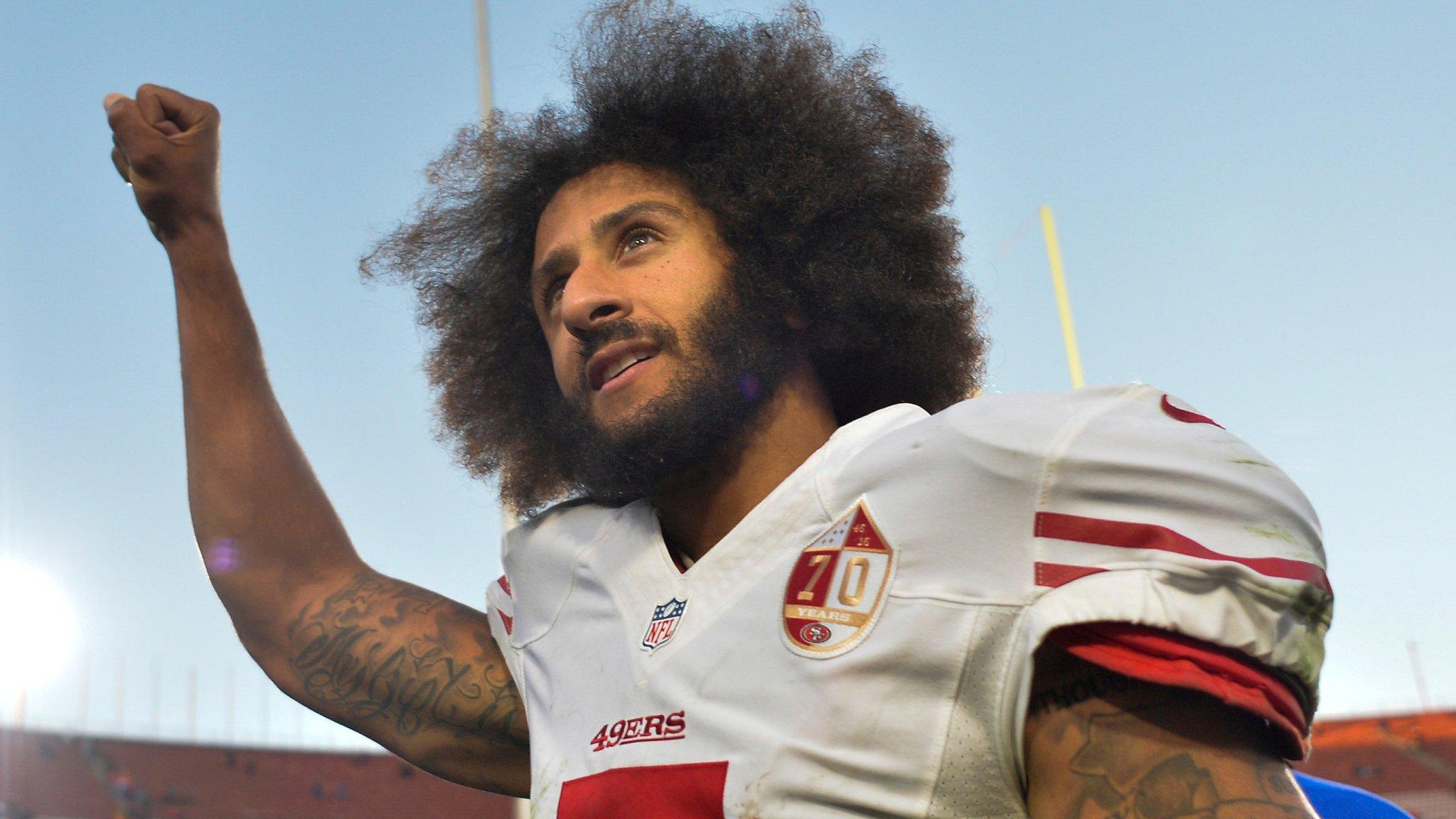
- Published29 March 2018
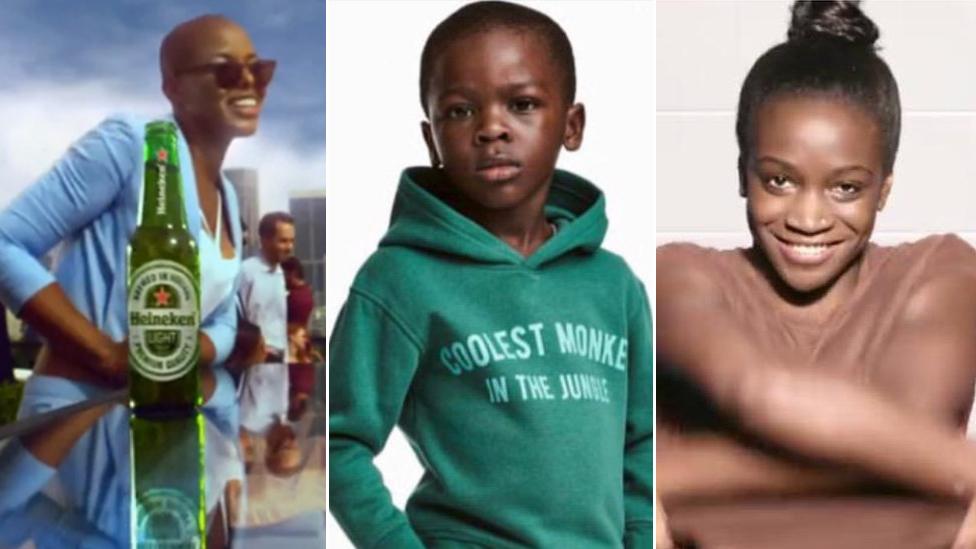
- Published6 December 2017
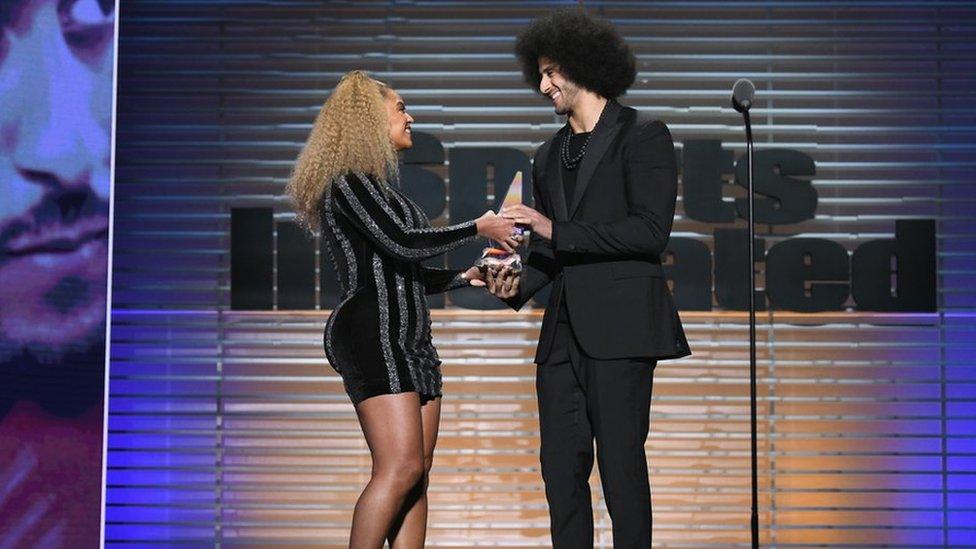
- Published11 October 2017
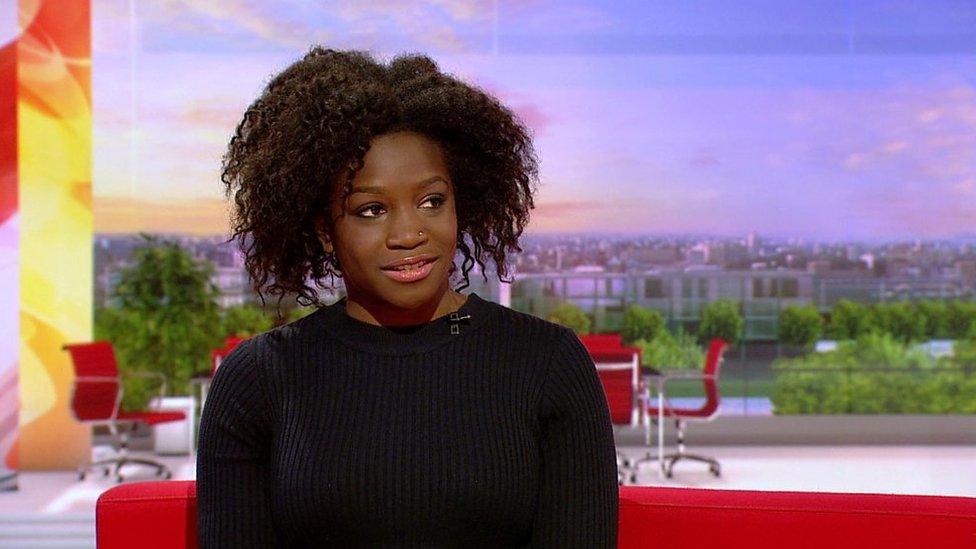
- Published2 October 2017
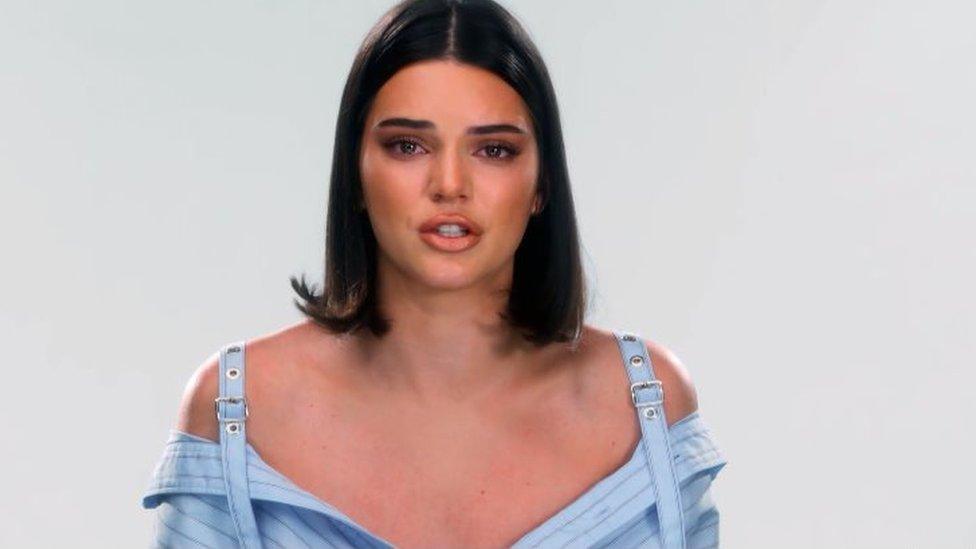
- Published25 September 2017
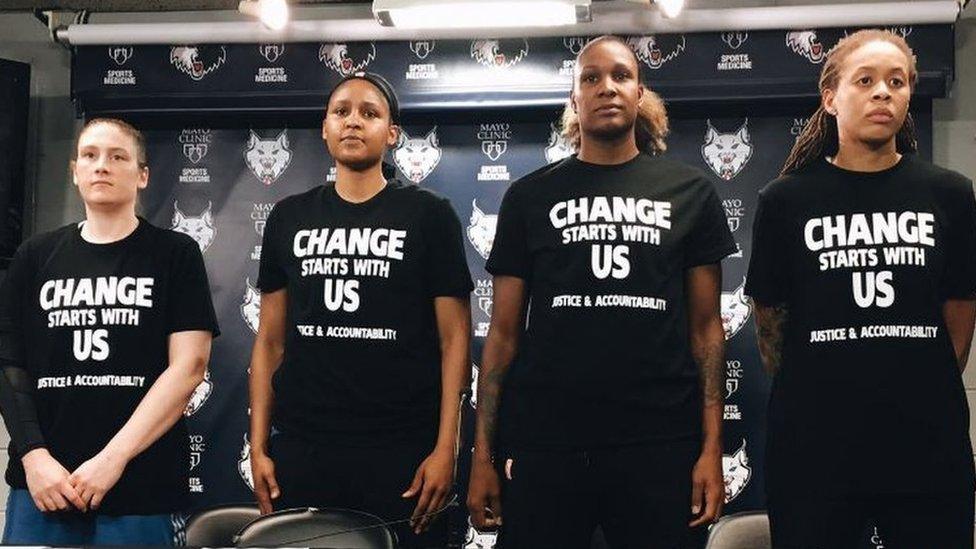
- Published22 June 2016
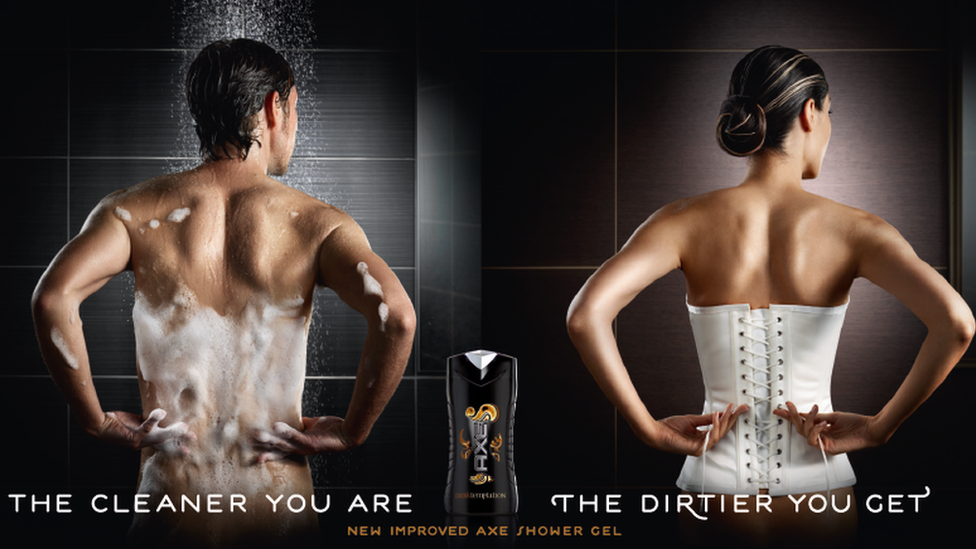
- Attribution
- Published12 January 2016
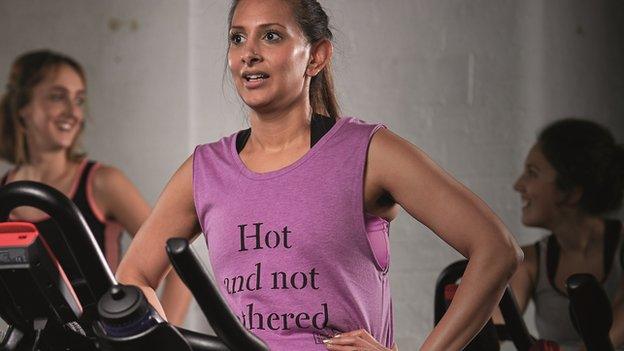
- Published1 July 2015
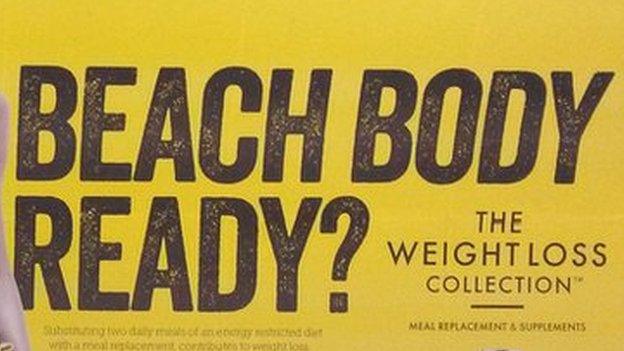
- Published3 July 2014
